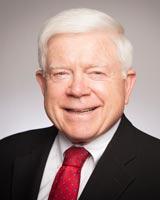Top Issues - Week of 2/27/17
Kirk Hanson is the executive director of the Markkula Center for Applied Ethics. Views are his own.
Ethical issues were prominent in the news this past week. Here are four to pay attention to:
Media as “Enemy of the People.” President Trump and his advisor Steve Bannon’s words and actions last week seemed to be no less than an attempt to delegitimize the role of the free press in the United States. The White House press secretary barred from his daily briefing reporters from several major news organizations that had been critical of the president. At the CPAC conference, Bannon warned, “It’s going to get worse every day for the media.” This could be dangerous to the American people and our form of government. We believe in checks and balances, and the free press has more than once proven an essential check on threats to American freedom. Today former President George W. Bush and former presidential candidate John McCain, both Republicans, raised the alarm over this ethical issue.
The Latest Battle Over Truth. I commented in an earlier “Ethics Fix” about the continuing and deliberate use of falsehoods by the president. There are signs of pushback, from the media, which has clearly labeled presidential “lies,” but also from elements of the government bureaucracy, which have marshalled data compiled by the government itself directly contradicting the president. The latest example is the short report by analysts in the Department of Homeland Security. They state there is no evidence that the seven nations targeted in the president’s immigration ban are a particular risk. The White House response is to attack the bureaucracy and leakers. All presidents have attacked leaks, but there are big-stakes ethical choices being made today by government officials and by leakers who risk White House wrath.
Your Values and Your Wallet. It appears that the younger a consumer is, the more likely he or she is to believe that your values should inform your purchasing. Fair trade practices, a responsible environmental record, and corporate commitment to social change have all been used by consumer groups and activists to motivate “responsible” buying and good corporate behavior. Recently, more consumers are also seeking to punish bad behavior; a growing number of cities have taken banking business away from Wells Fargo due to its recent scandal, for example. Now the focus is on any products associated with the Trump family or businesses whose executives serve on Trump advisory boards. A profile over the weekend described the motives and tactics of the activist behind the anti-Trump buying campaign. The ethical question in this case is whether it is “fair” to penalize a business for the activities of its owners or directors or to penalize a retailer for carrying a product made by someone with whom you disagree. On the other hand, some activists contend it is ethically required to use your purchasing power in this way.
Automakers and Air Bags. One of the most difficult ethical choices made by any company is, When is there enough evidence of a safety problem to warrant recalling and replacing the product? Several years ago I wrote a case on the juice maker “Nutritional Foods, “which chronicled day by day and even hour by hour the accumulating evidence of a poisoning problem in the company’s apple juice. On which day should they recall apple juice? And should they also recall all other blends which use even 1 percent of the apple juice. Today a similar issue is roiling the car industry. Lawyers are suing the major automakers for Takata’s dangerous air bags, which eventually led to a recall of 42 million vehicles. They argue that the automakers knew for years of the dangerous flaw and did not act because they wanted to save money. The ethical issue of responsibility will be at the heart of this litigation.
(AP Photo/Carlos Osorio, File)

